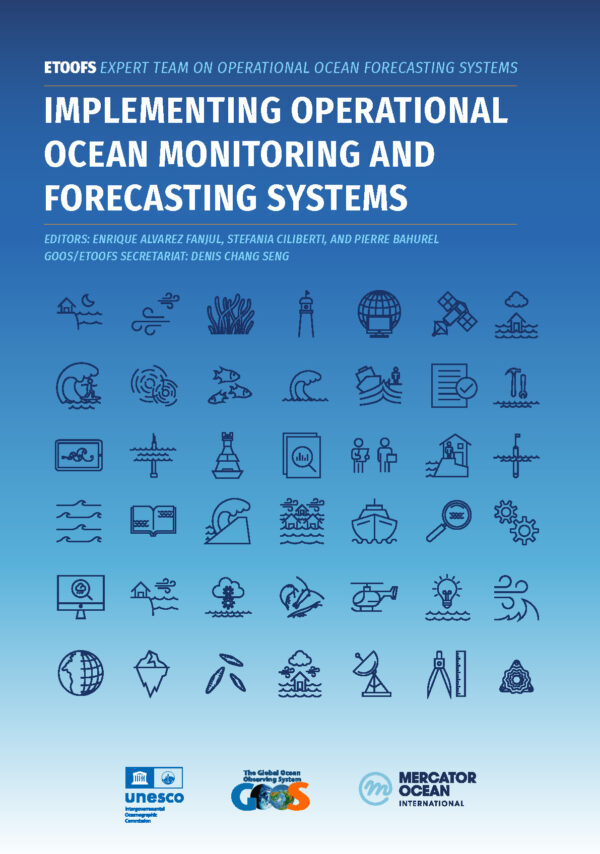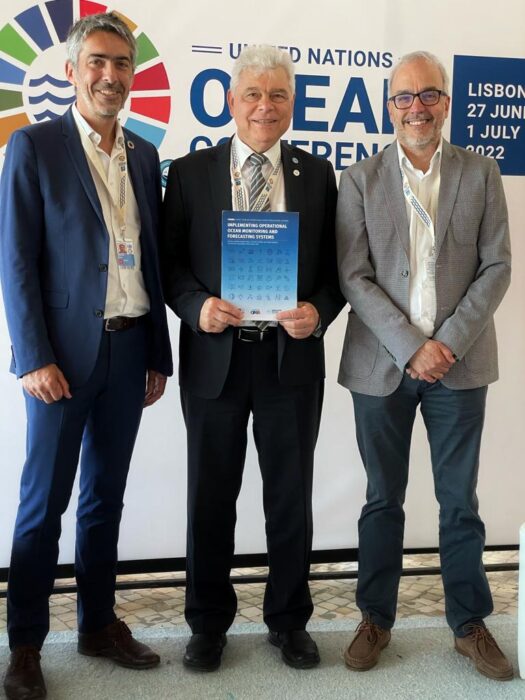
On the 1st of July at the United Nations Ocean Conference in Lisbon, the Global Ocean Observing System (GOOS) and its Expert Team on Operational Ocean Forecasting Systems (ETOOFS) announced the long awaited release of a comprehensive guide on “Implementing Operational Ocean Monitoring and Forecasting Systems”.
This is a testament to the resolve of the ocean forecasting community to build upon and democratise oceanographic knowledge and expertise, and by doing so contributing to a more sustainable ocean for all
says Pierre Bahurel, Director General of Mercator Ocean International.
This guide was initiated at the request of the Intergovernmental Oceanographic Commission of the UNESCO (IOC-UNESCO) and the World Meteorological Organisation (WMO), and funded by GOOS and Mercator Ocean International. It was produced thanks to the cooperation of 51 institutions from 18 countries worldwide. Moreover, 80 authors have participated in this project coordinated by the editors Enrique Alvarez Fanjul, Stefania Ciliberti, and Pierre Bahurel.
This technical guide sets a new highly-needed standard in digital oceanography. It will facilitate completion of the new, fuller value chain of modern operational ocean data processing and forecasting systems
says Vladimir Ryabinin, the Executive Secretary of the Intergovernmental Oceanographic Commission (IOC) of UNESCO.
The guide draws an overview of the entire value chain of an operational ocean monitoring and forecasting system as well as international standards and best practices for setting up such a service. Intended to provide guidelines and inspiration for professionals, it aims to promote the development of new marine forecasting systems around the globe along with the improvement of the existing ones. It is hoped that it will contribute to advocating for an informed and more sustainable relationship with our ocean.

A summary has also been developed to highlight and synthesize key points of the guide.
Discover and download the guide and its summary now:
